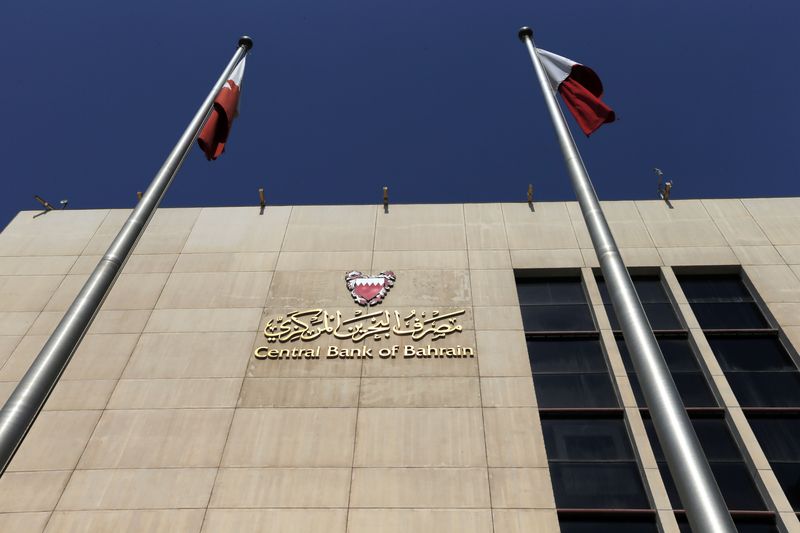CAIRO (Reuters) -Gulf central banks on Wednesday raised their main interest rates by a quarter percentage point in lockstep with the U.S. Federal Reserve as it began a monetary tightening cycle in a newly aggressive stance against rising inflation.
The six Arab nations of the Gulf Cooperation Council typically follow the Fed's lead on interest rates as their currencies are pegged to the U.S. dollar, except Kuwait's, which is pegged to a basket of currencies including the dollar.
"If policymakers in the Gulf did not allow interest rates to follow those in the U.S., capital would flow out of their economies and this would put downwards pressure on their currencies," James Swanston, Middle East and North Africa economist at Capital Economics, wrote in a research note.
The Saudi Central Bank (SAMA) increased both its repo and reverse repo rates by 25 basis points (bps) each to 1.25% and 0.75%, respectively.
"Policy rate adjustments are consistent with SAMA's objectives of maintaining monetary stability and supporting the stability of the financial sector in the evolving domestic and international monetary conditions," SAMA said in a statement.
The Central Bank of the UAE raised its base rate, which is on its overnight deposit facility, by 25 bps to 0.4%. CBUAE maintained the rate on borrowing short-term liquidity from it through all standing credit facilities at 50 bps above the base rate.
INVESTMENT
The central banks of Kuwait and Bahrain also raised their key interest rates by 25 bps. Qatar and Oman are widely expected to follow.
Historical precedent points to oil prices as a more potent harbinger for Gulf economies' fortunes than interest rates, though the hikes could impact people and companies' appetite to borrow for investment and consumption and boost saving by households, Swanston said.
"In terms of the supply of loans, rate increases will prompt banks to deem some potential lending opportunities no longer viable," he said, adding it could lead to higher debt servicing costs for businesses and individuals.
"All of this acts as a headwind to domestic demand, although this may be welcomed in so far as it helps to dampen inflationary pressures across the Gulf," Swanston said, as inflation has climbed to multi-year highs across the region, except in Saudi Arabia.
Companies in the UAE and Qatar, particularly in sectors hard-hit by the pandemic like tourism and real estate, risk a further increase in non-performing loans as central banks wind down pandemic-linked payment holidays, he said.
Government debt servicing costs will increase, but with Brent crude at over $97 a barrel, all Gulf governments are expected to post a fiscal surplus this year, reducing the need to raise debt to plug deficits.

However, Bahrain and Oman, the only GCC countries with sub-investment-grade credit ratings, have high fiscal breakeven oil prices, so even a small downturn in crude prices could swing them to deficits.
"Ultimately, we think that both Bahrain and Oman will need to turn to the rest of the Gulf for financial assistance in the coming years," Swanston said.